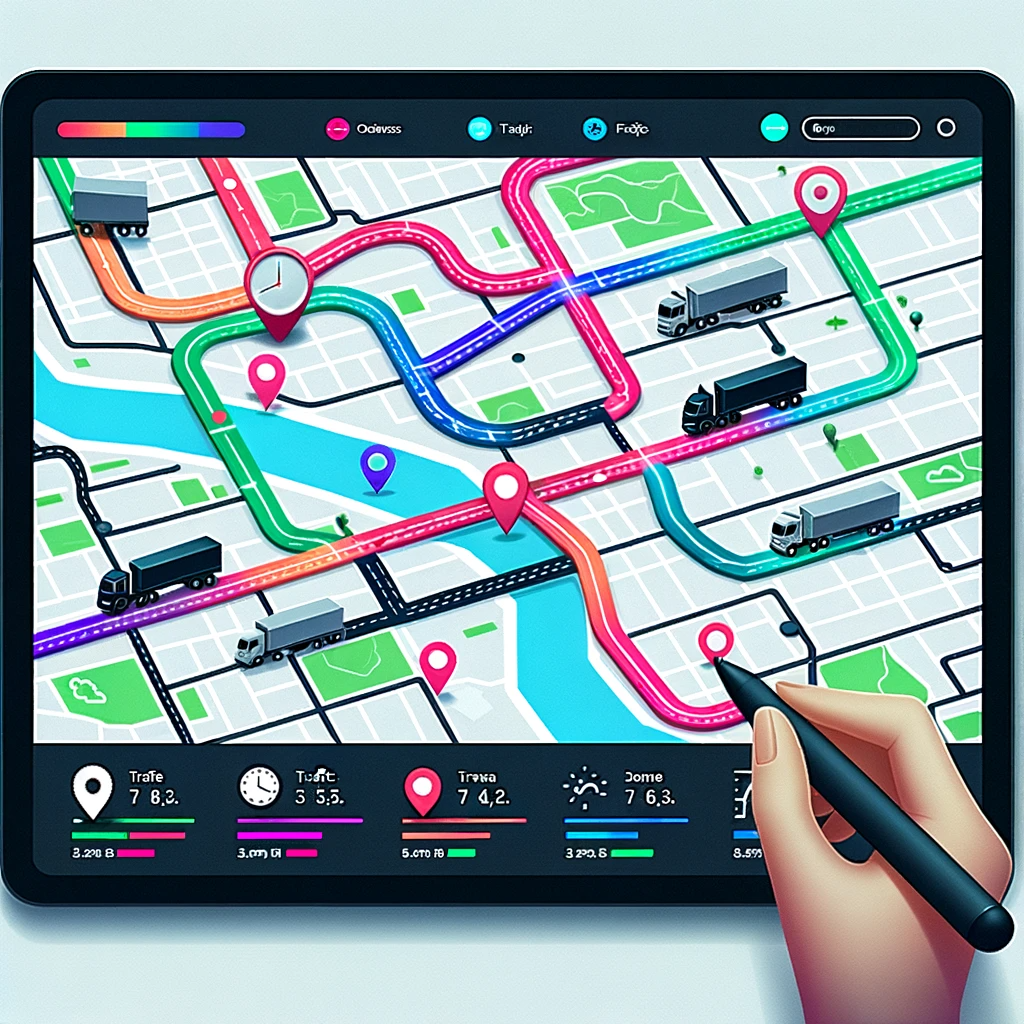In the fast-evolving world of video games and virtual simulations, AI plays a pivotal role in creating immersive and lifelike experiences. AI technology enables game developers to bring virtual worlds to life, by creating intelligent and adaptive characters, realistic environments, and challenging gameplay. As you explore the ever-expanding landscapes of virtual worlds, AI algorithms work behind the scenes, enhancing your gaming experience, and ensuring that the virtual characters you encounter behave in realistic and unpredictable ways. How exactly does AI make your gaming experience so enjoyable and dynamic? Let’s find out.
Understanding AI and Its Basics
Artificial Intelligence (AI) is a branch of computer science that focuses on creating intelligent machines capable of performing tasks that typically require human intelligence. It involves the development of algorithms and models that enable computers to learn from and adapt to data, solve complex problems, and make decisions.
Defining AI
AI can be broadly classified into two categories: narrow AI and general AI. Narrow AI refers to systems that are designed for specific tasks and can perform those tasks at a level on par or better than humans. For example, AI-powered language translation tools or voice assistants like Siri or Alexa fall under narrow AI. On the other hand, general AI refers to highly autonomous systems that possess human-level intelligence and can understand, learn, and apply knowledge across various domains.
The Significance of AI in Technology
AI has become increasingly significant in the field of technology due to its ability to automate tasks, analyze vast amounts of data, and learn from patterns. In video games and virtual simulations, AI plays a crucial role in enhancing the gameplay experience, creating realistic characters, and enabling complex decision-making algorithms. Its significance extends beyond gaming, as AI is also used in healthcare, transportation, finance, and other sectors to improve efficiency and optimize processes.
Primary Components of AI
The primary components of AI include machine learning, natural language processing, computer vision, and expert systems. Machine learning enables computers to learn from and adapt to data, improving performance over time. Natural language processing allows computers to understand and interpret human language, enabling seamless communication between humans and machines. Computer vision enables machines to process and analyze visual information, making it possible for AI systems to recognize and interpret images or videos. Expert systems use a knowledge base to mimic human expertise in specific domains, providing intelligent solutions and recommendations.
History of AI in Video Games
Video games have long been a pioneer in the use of AI, with developers utilizing various techniques to create intelligent and lifelike virtual opponents or allies. The history of AI in video games can be traced back to the early days of gaming, where simplistic algorithms were used to simulate enemy behavior.
The Conception of AI in Games
The concept of AI in video games emerged in the 1950s when researchers began experimenting with building simple games that featured computer-controlled opponents. These opponents were programmed with basic rules and decision-making processes to mimic human-like behavior. However, the limitations of hardware and computing power at the time restricted the complexity of AI systems.
Evolution of AI in Gaming History
As computing power increased and technology advanced, the capabilities of AI in video games evolved significantly. In the 1980s and 1990s, game developers incorporated more advanced AI techniques, such as pathfinding algorithms and decision tree algorithms, to create more challenging and realistic opponents. These advancements allowed NPCs (Non-Playable Characters) to navigate game environments, make strategic decisions, and react to player actions in increasingly sophisticated ways.
Major Innovation Points of AI in Video Games
Several major innovation points have shaped the use of AI in video games. One such milestone was the introduction of reactive AI, which enabled NPCs to react dynamically to player actions. This brought a new level of realism and immersion to games. Subsequently, the development of behavior trees and finite-state machines allowed for more complex and adaptive behaviors. In recent years, machine learning and neural networks have revolutionized AI in games by enabling NPCs to learn and improve their performance through experience, making gameplay interactions more engaging and personalized.

AI in Current Video Game Landscape
AI continues to be a driving force in modern game development, revolutionizing the way games are designed and experienced.
Role of AI in Modern Game Development
AI plays a crucial role in modern game development by enhancing various aspects of the gaming experience. It enables developers to create intelligent and lifelike NPCs that provide challenging opponents, engaging allies, or supportive characters. AI algorithms also contribute to realistic physics simulations, dynamic world-building, and generating procedural content. Additionally, AI techniques are employed in player behavior analysis, allowing developers to tailor gameplay experiences based on individual preferences and skill levels.
Different Genres Utilizing AI
AI is utilized across various game genres, each with its unique requirements and applications. In strategy games, AI is crucial for creating intelligent opponents capable of strategic decision-making and adaptive gameplay. In first-person shooters, AI controls enemy behavior and ensures challenging and realistic combat scenarios. Role-playing games often employ AI to create immersive and dynamic NPCs that respond to player choices and actions. Sports games utilize AI to simulate realistic opponent behavior, ensuring a competitive and enjoyable experience.
Examples of Influential Video Games with Strong AI
Many influential video games have showcased the power and impact of AI in shaping gameplay experiences. One such example is the “F.E.A.R.” series, known for its advanced enemy AI. Enemies in this game were capable of reacting intelligently to the player’s tactics, taking cover, and coordinating attacks. Another notable example is “The Last of Us,” which features an AI companion that exhibits realistic and believable behavior, enhancing the emotional depth of the game. These games highlight how AI can contribute to immersive and captivating gameplay.
Exploring AI-driven Game Design
AI-driven game design refers to the integration of AI techniques in the design and development of games, enhancing various aspects of gameplay and player experience.
Concept of AI-based Game Design
AI-based game design involves the use of AI algorithms and techniques to generate content, create interactive game mechanics, and adapt gameplay experiences. It allows developers to add a dynamic and evolving element to games, making them more engaging and replayable. Through AI-based game design, games can offer personalized challenges, generate dynamic narratives, and respond intelligently to player input.
How AI Enhances Game Mechanics
AI enhances game mechanics by introducing adaptive and intelligent behavior into gameplay systems. In puzzle games, AI algorithms can analyze player progress and dynamically adjust difficulty levels to keep players challenged yet not overwhelmed. In open-world games, AI-controlled NPCs can populate the game world, creating a sense of realism and immersion. AI can also be used to create intelligent opponents that provide a challenging experience by analyzing player strategies and adapting their approach accordingly.
Algorithmic Content Creation via AI
AI enables algorithmic content creation, which involves generating game content automatically using AI techniques. This can include procedurally generated levels, dynamic quests, or believable dialogue. By leveraging AI, developers can create vast and varied game worlds, saving time and resources in the design process. Algorithmic content creation also allows for more personalized experiences, dynamically adapting to players’ choices and preferences.

AI in Game Character Behavior and Interaction
AI plays a crucial role in creating realistic and immersive game characters, allowing for believable behaviors and meaningful interactions.
Use of AI in Creating Realistic Game Characters
AI is instrumental in creating realistic game characters by simulating human-like behaviors and emotions. Advanced AI techniques, such as facial recognition and emotion modeling, enable characters to display a wide range of emotions, enhancing their depth and relatability. AI-controlled characters can analyze their environment, make decisions based on contextual information, and respond to player actions, creating a more immersive and interactive experience.
AI Applications in Non-Playable Character (NPC) Behavior
NPCs are crucial in shaping the gameplay experience, and AI is utilized extensively to control their behavior. AI algorithms are employed to provide NPCs with realistic movement patterns, decision-making abilities, and social interactions. In open-world games, NPCs may have daily routines, engage in conversations with each other, or react to the player’s presence. This AI-driven behavior adds depth and realism to the game’s world, making it feel alive and dynamic.
AI’s Role in Enhancing Player-Character Interactions
AI enhances player-character interactions by enabling characters to respond intelligently and adaptively to player actions. NPCs can have dynamic dialogues, remembering conversations and adjusting their behavior accordingly. AI-controlled allies can provide assistance, adapt their tactics, and respond to the player’s needs. By incorporating AI, game developers can create more immersive and immersive player-character interactions, allowing for deeper engagement with the game world.
Adaptive AI in Video Games
Adaptive AI refers to AI systems that can learn and adapt to changes in their environment or player behavior, improving their performance over time.
Definition of Adaptive AI
Adaptive AI refers to AI algorithms and models that can adjust their behavior and decision-making based on changing circumstances. These algorithms use machine learning techniques to analyze data, learn from it, and adapt their strategies to achieve better outcomes. Adaptive AI enables game opponents to become more challenging as players become more skilled, providing a balanced and engaging gameplay experience.
Benefits of Adaptive AI in Gaming
Adaptive AI offers several benefits in gaming. Firstly, it ensures that gameplay remains challenging and enjoyable for players throughout their gaming journey. As players improve their skills, AI opponents become more adept, preventing stagnation and fostering continued engagement. Furthermore, adaptive AI allows for personalized gameplay experiences, tailoring difficulty levels and game mechanics to suit individual players’ preferences. This leads to increased player satisfaction and a sense of accomplishment.
Noteworthy Instances of Adaptive AI in Games
Many games have implemented adaptive AI, showcasing its effectiveness in enhancing gameplay experiences. “Left 4 Dead,” a cooperative first-person shooter, uses a dynamic AI director to adapt the game’s intensity, pacing, and enemy spawns based on player performance. The director analyzes player actions, optimizing the game’s challenge level in real-time. Another notable example is “The Legend of Zelda: Breath of the Wild,” where enemy AI responds to player tactics and evolves its behavior throughout the game. These instances demonstrate the potential of adaptive AI in creating dynamic and engaging gameplay scenarios.

AI in Virtual Simulations
AI is an integral component of virtual simulations, allowing for realistic and immersive experiences in virtual reality (VR) and augmented reality (AR).
The Importance of AI in Virtual Reality
In virtual reality experiences, AI is essential for creating believable and interactive virtual worlds. AI algorithms enable virtual characters and NPCs to behave realistically, respond to user inputs, and adapt to changing virtual environments. This creates a sense of presence and immersion, making virtual reality experiences more compelling and engaging for users.
Real-Life Application of AI in Simulations
Simulation technology powered by AI has found applications in various fields, including training simulations for professionals in medicine, aviation, and the military. AI enables simulations to realistically mimic real-life scenarios, providing trainees with valuable practice in a safe and controlled environment. By incorporating AI, simulations can adapt to trainee performance, providing targeted feedback and personalized learning experiences.
Challenges and Opportunities with AI in Virtual Simulations
The integration of AI in virtual simulations presents both challenges and opportunities. One challenge is creating AI systems that can accurately mimic human behavior, as believability is crucial for immersion. Additionally, AI algorithms need to process large amounts of data in real-time to enable responsive interactions, requiring significant computational resources. On the other hand, AI opens up opportunities for creating personalized and adaptive simulations that cater to individual learning styles and goals. AI-driven simulations also allow for the testing of novel concepts and scenarios that would be difficult or risky in the real world.
Impact of AI on the Gaming Industry
AI has had a significant impact on the gaming industry, revolutionizing not only game design and development but also marketing, accessibility, and data analysis.
AI in Game Marketing and Monetization
AI is increasingly being used in game marketing and monetization strategies. AI algorithms analyze player data, preferences, and behaviors to deliver personalized advertisements and recommendations. This targeted marketing approach enhances player engagement and increases the chances of monetization through in-app purchases or microtransactions. AI-driven recommendation systems also help players discover new games based on their individual preferences, improving user experience and driving sales.
AI’s Contribution to Game Accessibility
AI has contributed to making games more accessible to a wider audience, including players with disabilities. Text-to-speech and speech recognition technologies enable players with visual impairments or motor disabilities to interact with games using voice commands or receive auditory feedback. AI-powered assistive technologies can adapt game difficulty levels, offering customized experiences for players with diverse skill levels or cognitive abilities. These advancements in game accessibility ensure inclusivity and equal opportunities for all players to enjoy gaming.
Predictive Modeling and Data Analysis Through AI in Gaming
AI-powered predictive modeling and data analysis have become invaluable tools in the gaming industry. Game developers and publishers use AI algorithms to mine and analyze player data, gaining insights into player behavior, preferences, and engagement patterns. This data-driven approach allows for the optimization of game design, marketing strategies, and monetization models. AI algorithms can predict player churn, identify potential revenue opportunities, and inform decisions on game updates or new content releases, leading to more informed and successful game development processes.

Future Prospects of AI in Video Games and Virtual Simulations
The future prospects of AI in video games and virtual simulations are promising, with several exciting trends and advancements on the horizon.
AI’s Potential in the Gaming Industry
AI has the potential to revolutionize the gaming industry further. Advances in machine learning and neural networks could lead to the development of even more intelligent and adaptive opponents, providing highly challenging and personalized gameplay experiences. Additionally, AI’s ability to generate dynamic and varied content could result in endless possibilities for game worlds, quests, and narratives. The integration of AI with virtual reality and augmented reality technologies also holds great promise, creating immersive and realistic experiences.
Trends in AI for Future Video Games
Several key trends in AI are expected to shape the future of video games. One such trend is the use of generative AI, where AI algorithms generate content, including graphics, sounds, and narratives. This approach offers endless possibilities for creative game design. Reinforcement learning, a branch of machine learning, is also gaining traction in game development, allowing AI systems to learn and adapt to game environments through trial and error. Furthermore, player-centric AI, which focuses on understanding and anticipating player behavior, will continue to drive personalized gameplay experiences.
Advancements in VR and AR with AI
AI advancements will significantly impact the virtual reality and augmented reality sectors. AI algorithms can improve the realism and interactivity of virtual environments, providing more immersive experiences. Natural language processing will enable realistic and intelligent conversational interactions in virtual reality. AI-powered object recognition and tracking can enhance AR experiences, allowing virtual objects to seamlessly interact with the real world. These advancements in VR and AR combined with AI will redefine the possibilities of gaming and simulations.
Ethical Considerations and Risks of AI in Gaming
While AI brings numerous benefits to the gaming industry, there are also ethical considerations and potential risks associated with its use.
Concerns over AI in Games
One concern is the potential reinforcement of harmful stereotypes or biases in AI-controlled characters or game narratives. Bias in AI algorithms can lead to unfair treatment of certain groups or perpetuation of negative stereotypes. Another concern is the possibility of AI being used to exploit or manipulate players through targeted monetization strategies, potentially leading to excessive in-app purchases or addictive gameplay. It is crucial for developers and regulators to ensure ethical standards and guidelines are in place to mitigate these concerns.
The Risk of Reliance on AI
Overreliance on AI in game development poses its own risks. If games become too reliant on AI systems, they may lose the human touch and emotional depth that make them captivating. Game developers must strike a balance between AI-driven automation and human creativity to ensure games maintain their artistic integrity and uniqueness. Additionally, dependence on AI can also lead to a loss of jobs in the gaming industry, as certain roles may become automated or outsourced to AI algorithms.
Ensuring Ethical Application of AI in Game Development
To mitigate risks and ensure ethical application of AI in game development, it is crucial to follow guidelines and best practices. Developers should prioritize fairness, transparency, and inclusivity in AI algorithms, avoiding biased or discriminatory behavior. Ethical considerations should be embedded in the entire development process, from data collection to AI system design, enabling responsible and accountable use of AI. Collaboration between developers, researchers, and policymakers is essential to establish industry standards and regulations that protect consumers and foster ethical practices.
In conclusion, AI plays a vital role in shaping the gaming industry and enabling immersive virtual simulations. From enhancing game mechanics and creating realistic characters to revolutionizing game design and analyzing player data, AI is transforming the way games are developed, experienced, and marketed. However, ethical considerations, such as bias mitigation and responsible AI use, are necessary to ensure the positive impact of AI in gaming. As technology advances, the future prospects of AI in video games and virtual simulations are boundless, offering endless opportunities for innovation and creating truly immersive and engaging gaming experiences.











